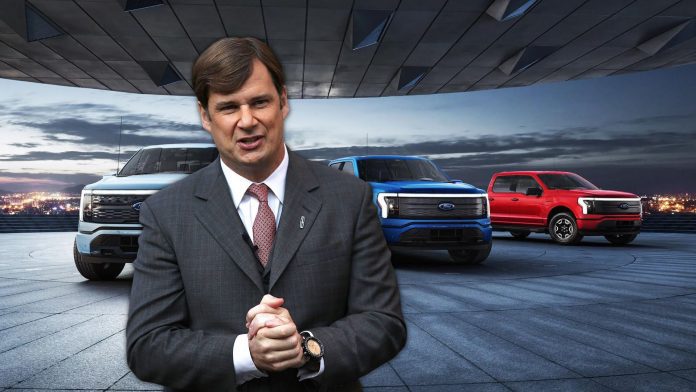As Ford prepares to launch its next-generation EV portfolio, the automaker is discontinuing its Escape, Edge, and Transit gas-powered vehicles.
Despite some setbacks in its EV rollout, Ford is moving forward with developing its second-generation cars.
CEO Jim Farley announced in February that the carmaker was creating an internal EV platform for its upcoming line of EVs. The new EV architecture will support an entirely new full-size electric truck and three-row SUV.
Project T3, which stands for “Trust The Truck,” honors the team developing the electric truck for the digital age. It’s a truck that can tow, haul, export power, and introduce new ideas. Farley described a new three-row electric SUV with a 350-mile range and a roomy interior during Ford’s Capital Market Day.
Farley says the new EV truck will resemble “the Millennium Falcon with a back porch attached.” It will be constructed at Ford’s brand-new BlueOval City complex in Tennessee, which is about six square miles in size. Meanwhile, Ford is in the process of turning its Oakville assembly facility in Ontario, Canada, into a center for the production of EVs and battery packs. The complex will mark Ford’s first high-volume plant makeover in North America once it is finished. To streamline production, the business intends to ship battery cells and arrays from the BlueOval City hub to the expanded facility.
Additionally, the BlueOval brand is making room for a new generation of EVs, so it’s time for the gas-powered Ford Escape, Edge, and Transit Connect to fade out.
The revelation comes after the final Ford Fiesta left the factory last month. Ford stopped making the Fiesta to create a place for manufacturing the new electric Explorer at its Cologne, Germany, facility.




